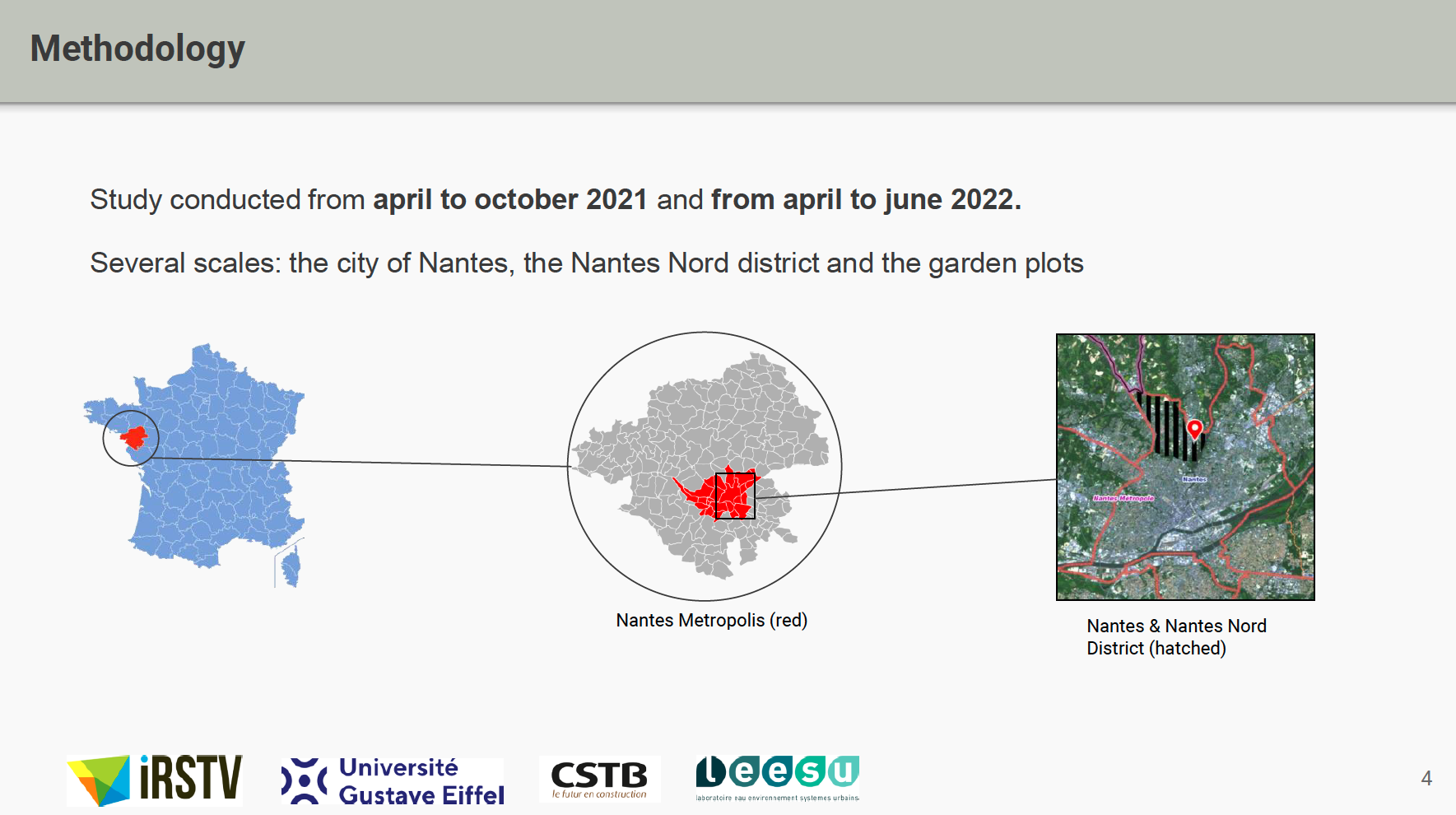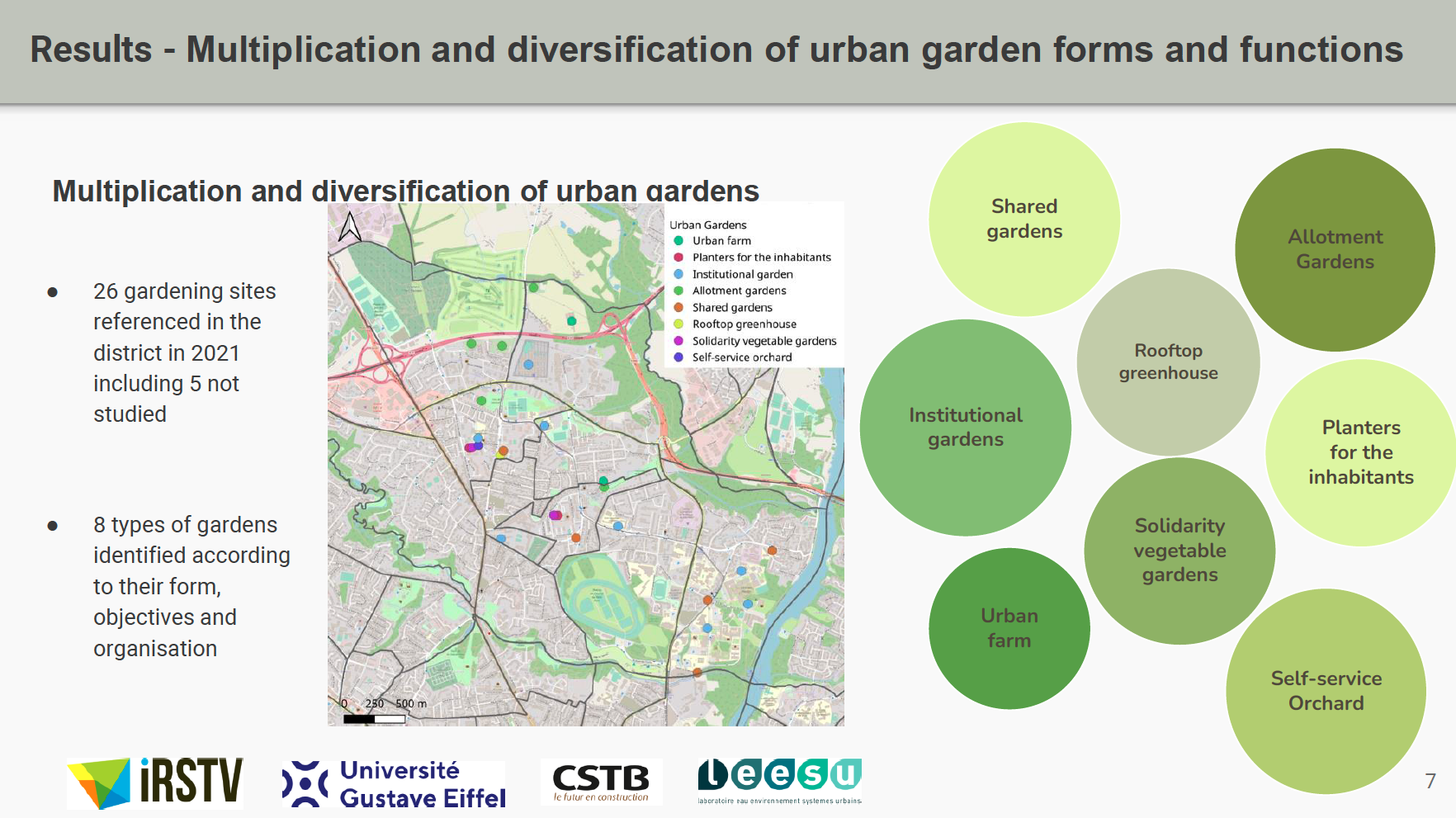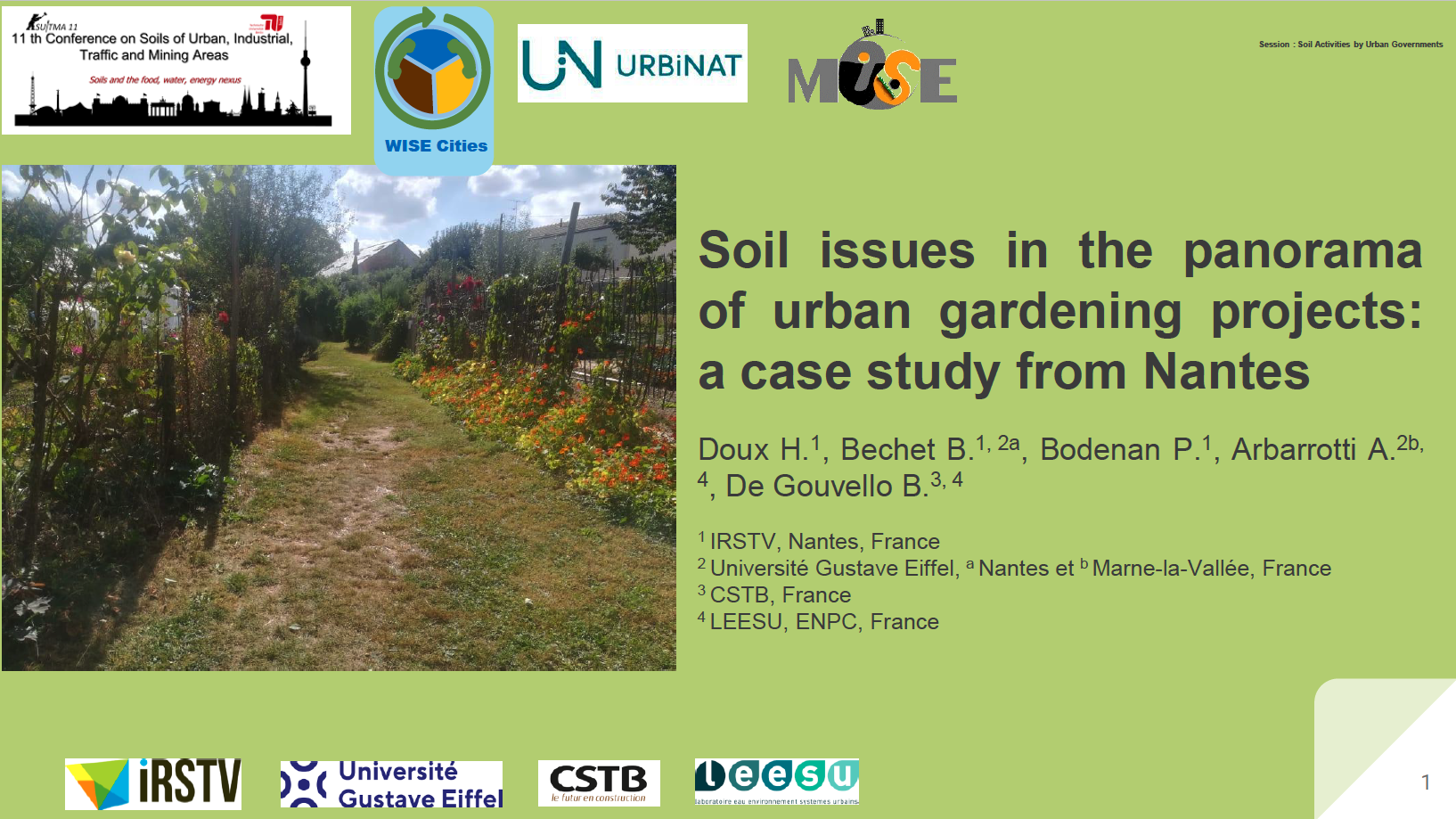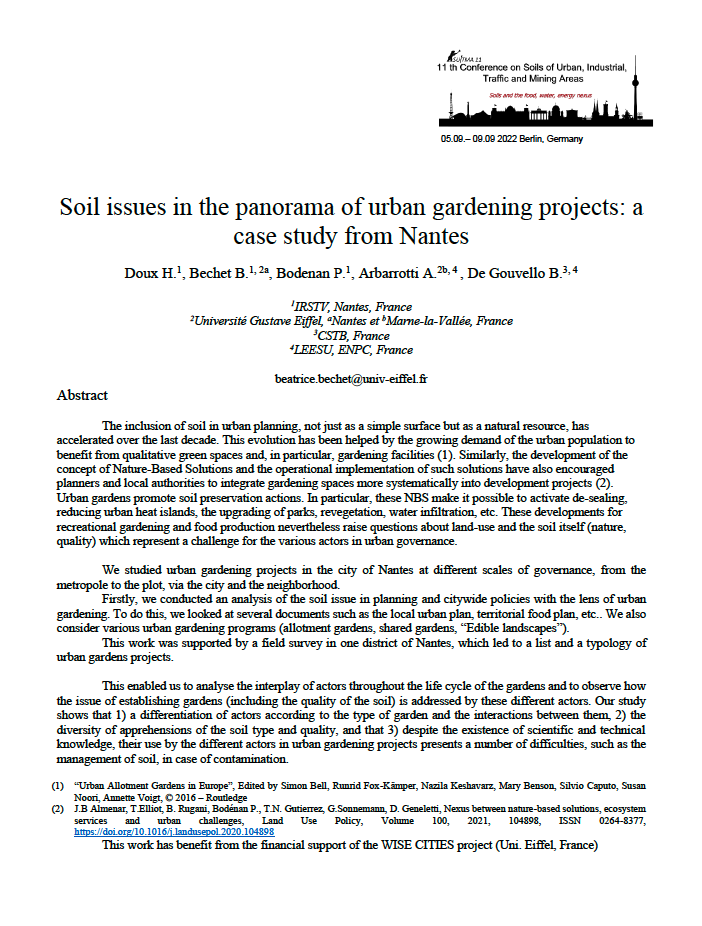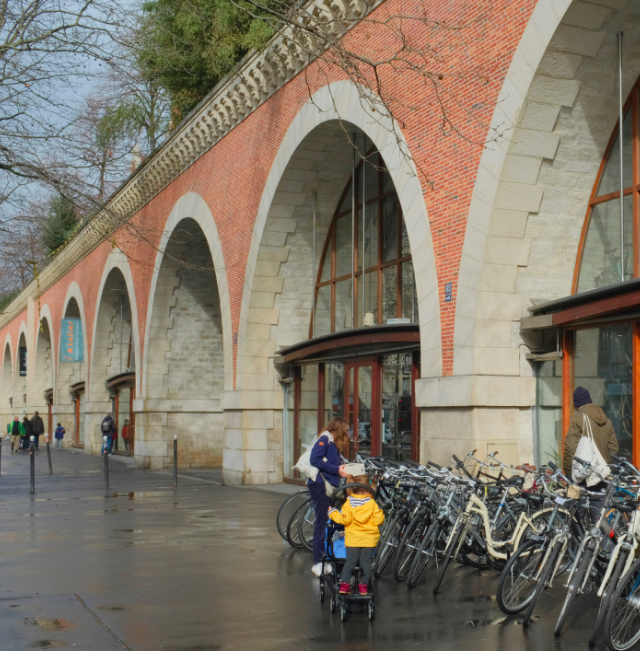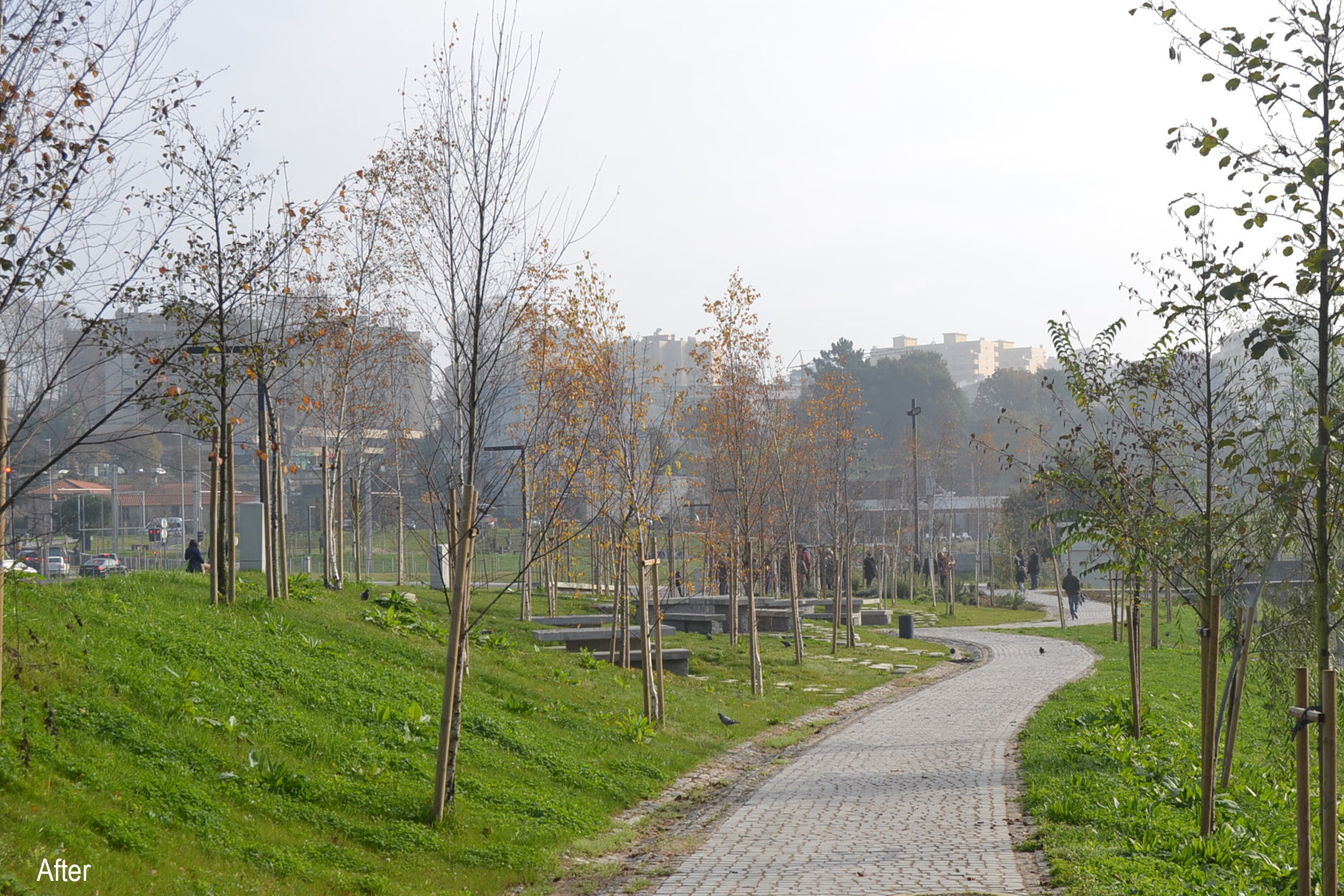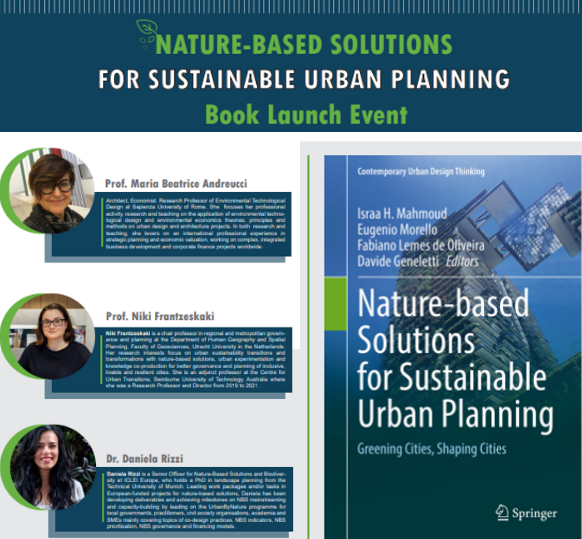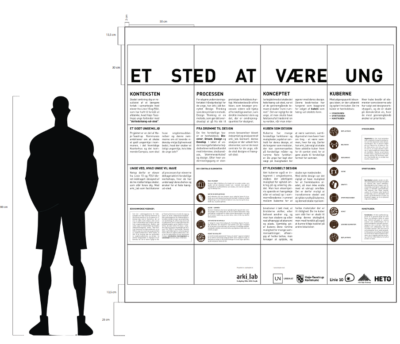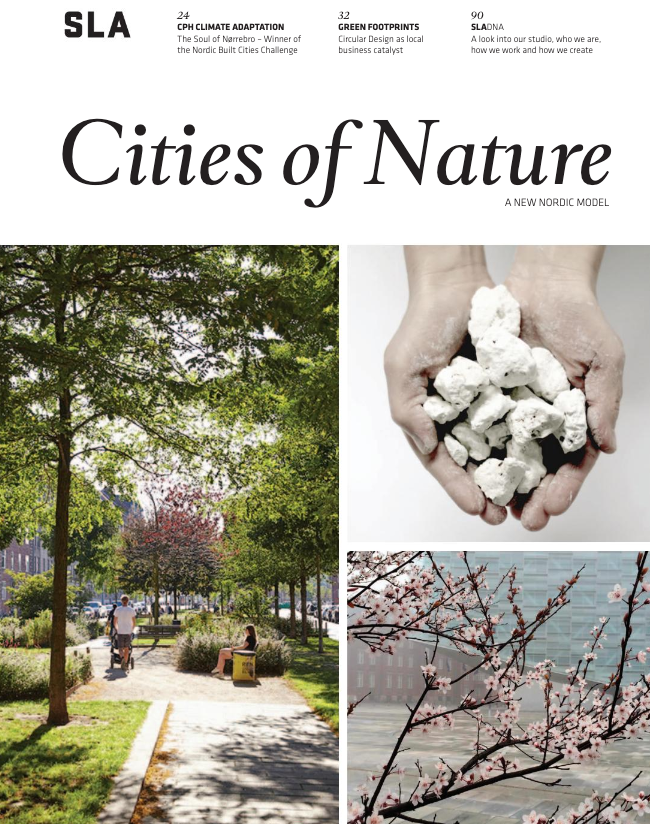URBiNAT partners attend 11th Conference on Soils of Urban, Industrial, Traffic and Mining Areas
Sept. 5, 2022. Scientific partners from Frontrunner City Nantes, in collaboration with other URBiNAT partners took part in the 11th Conference of Soils of Urban, Industrial, Traffic and Mining Areas. In their presentation partners discussed work carried out as part of the URBiNAT project on the analysis of the soil issue in planning and citywide policies with the lens of urban gardening. They discussed how it was necessary to take into account documents such as local urban plan, territorial food plans, etc., and consider various urban gardening programs (allotment gardens, shared gardens, “Edible landscapes”).
[ABSTRACT] The inclusion of soil in urban planning, not just as a simple surface but as a natural resource, has accelerated over the last decade. This evolution has been helped by the growing demand of the urban population to benefit from qualitative green spaces and, in particular, gardening facilities (1). Similarly, the development of the concept of Nature-Based Solutions and the operational implementation of such solutions have also encouraged planners and local authorities to integrate gardening spaces more systematically into development projects (2). Urban gardens promote soil preservation actions. In particular, these NBS make it possible to activate de-sealing, reducing urban heat islands, the upgrading of parks, revegetation, water infiltration, etc. These developments for recreational gardening and food production nevertheless raise questions about land-use and the soil itself (nature, quality) which represent a challenge for the various actors in urban governance.
